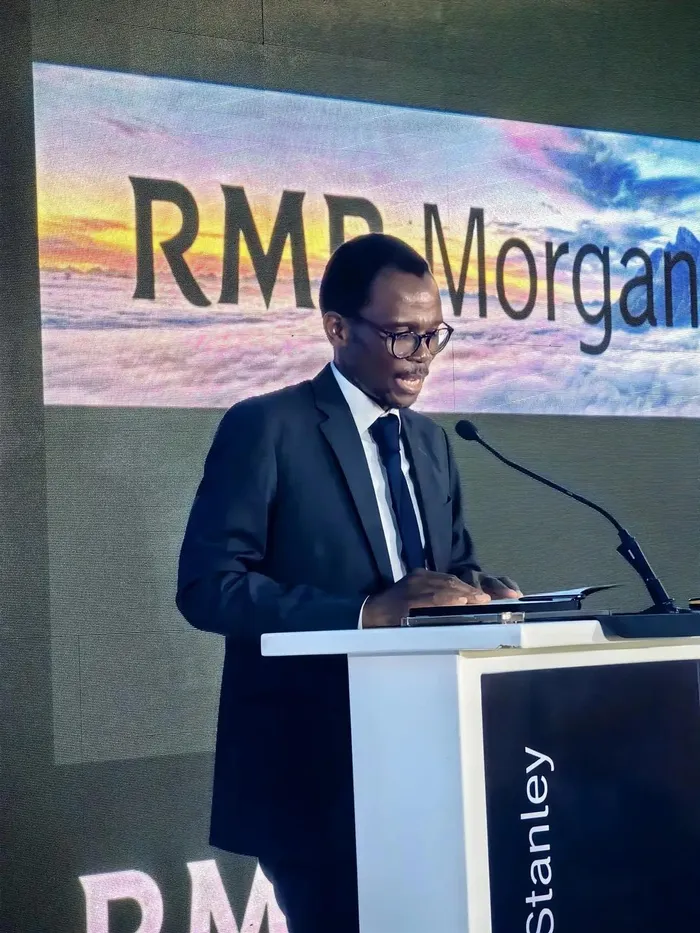Govt taking deliberate steps to restore fiscal discipline, stabilise debt: Masondo
TREASURY

Deputy Finance Minister, David Masondo, was speaking at the RMB Morgan Stanley Investor Conference on Monday.
Image: Supplied
Deputy Finance Minister David Masondo has assured investors that government is taking “deliberate steps” to restore fiscal discipline and stabilise debt.
The country's debt-to-GDP ratio is projected to stabilise at 77.4% of gross domestic product (GDP) this financial year, before declining to 74.4% by the end of the decade in 2029/30.
Speaking at the RMB Morgan Stanley Investor Conference on Monday, Masondo said fiscal sustainability remains at the heart of government’s economic agenda.
Masondo said when the Finance Minister Enoch Godongwana delivers the Medium-Term Budget Policy Statement (MTBPS) in November, he will provide an update on this trajectory.
He said that Godongwana will also announce some adjustments to the budget process to reduce uncertainty and reinforce government’s focus on stabilising the fiscal trajectory, given the delays in tabling and approving the Budget earlier this year.
"Sustainable debt is a cornerstone of fiscal sustainability. It is not just about how much debt we carry, but whether that debt can be serviced, and more importantly, what the debt is used for," Masondo said.
"Debt that funds consumption weakens the economy; debt that funds infrastructure investment expands the economy’s capacity and unlocks growth."
Masondo highlighted that South Africa has maintained a primary budget surplus for three consecutive years, a key measure that helps reduce debt-service costs and free up resources for growth-enhancing investments.
"As debt-service costs decline, savings can be directed towards fiscal buffers and productive infrastructure, reducing the cost of doing business and supporting growth," he said.
"Our gross borrowing requirement is projected to decline to R434 billion in 2026/27 before increasing to R588bn in 2027/28. Over the medium term, we expect to raise $14.6bn to meet foreign exchange commitments."
Masondo also confirmed that Treasury will continue diversifying its borrowing instruments, including sustainable financing tools such as green bonds and sukuk, to align with investor appetite while supporting long-term fiscal sustainability.
"We will continue to use a balanced mix of domestic and foreign borrowing, with predictability and confidence as guiding principles," he said.
Fitch Ratings cited weak economic growth prospects, rising government debt and high poverty and inequality as the country’s main credit constraints as it affirmed South Africa’s credit ratings status at sub-investment level, with a stable outlook.
Fitch noted that debt levels remained a key concern as the government debt rose to 78.1% of GDP in 2024, forecasting it to climb further and reach nearly 80% by 2027, far above the peer median of 54%.
The agency warned that fiscal flexibility was hampered by a rigid expenditure structure, with wages and interest payments consuming almost half of government spending.
Fitch is projecting that South Africa’s economy would expand by only 1.2% annually between 2025 and 2027, well below the 3.7% median growth forecast for peers in the same ratings category.
The National Treasury in May projected real GDP growth of 1.4% for this year, and updated forecast will be provided during the MTBPS.
Meanwhile, Masondo said growth was critical not only because it drives tax revenue, but because it creates jobs, household income, and profits for companies.
He said stronger corporate earnings enhanced investment attractiveness, reduced sovereign risk premiums, lowered the cost of equity, and ultimately strengthened South Africa's stock market performance.
Masondo pointed to the Metro Trading Services Reform under Operation Vulindlela Phase II as an example of structural reforms aimed at unblocking bottlenecks.
The initiative will provide metros with access to a R54bn performance-linked incentive grant, conditional on measurable improvements in governance and service delivery.
This, Masondo argued, is expected to crowd in at least R108bn in additional investment into municipal infrastructure.
"Only metros that demonstrate measurable improvements in service delivery, financial performance, and governance will qualify. For every rand of incentive funding, metros are expected to leverage at least another rand, mobilising an additional R108bn into infrastructure," he said.
"For financial institutions and investors, this reform creates a new opportunity. Lower risk, greater transparency, and stronger governance will open the door for financing water, sanitation, energy, and waste infrastructure, projects that improve lives and generate sustainable returns."
Masondo acknowledged that South Africa’s fiscal path was not without challenges, but said the task was to balance caution with opportunity, ensuring that the government honours its obligations while creating the space for growth and investment.
"We are serious about fiscal sustainability, we are implementing reforms that will unlock growth, and we are inviting investors to partner with us on this journey," he said.
BUSINESS REPORT